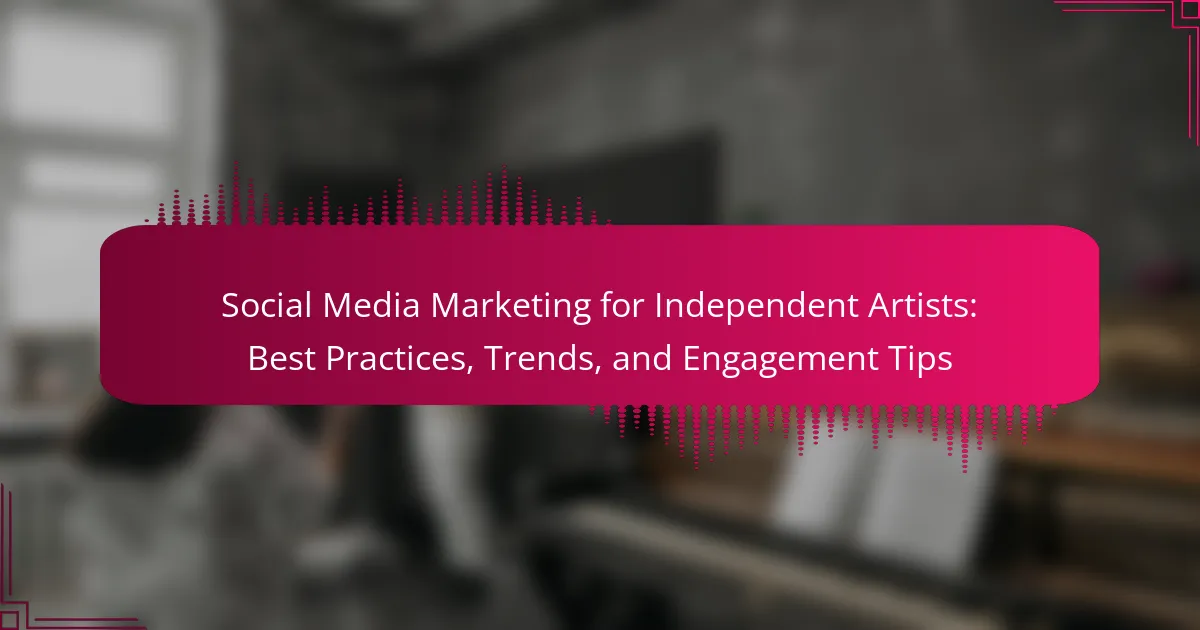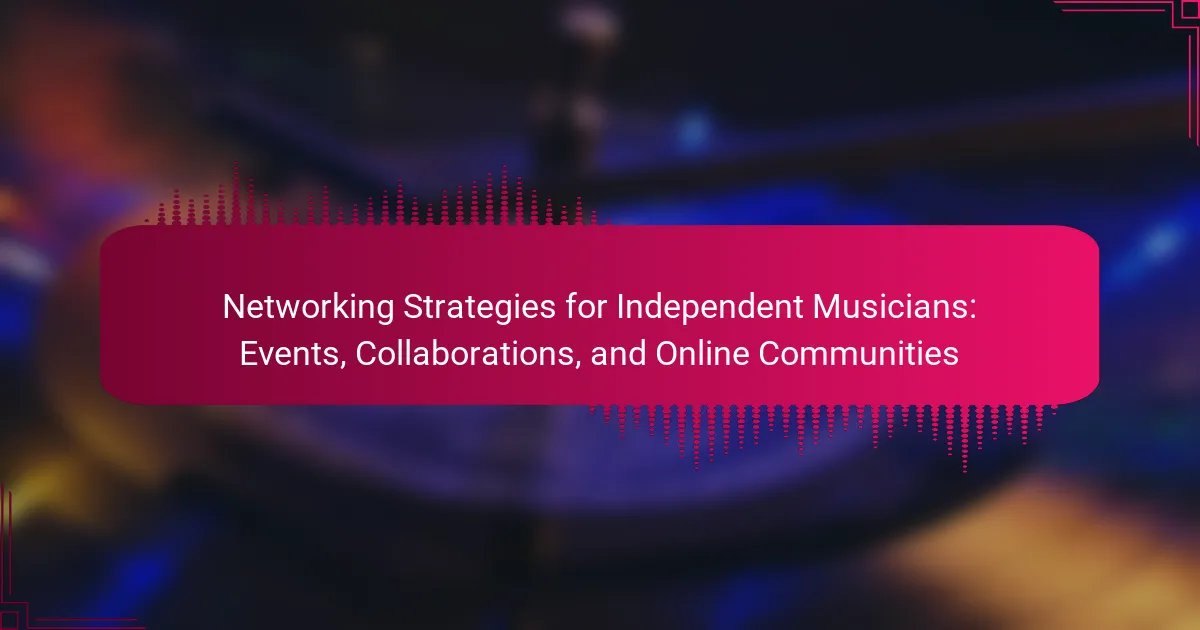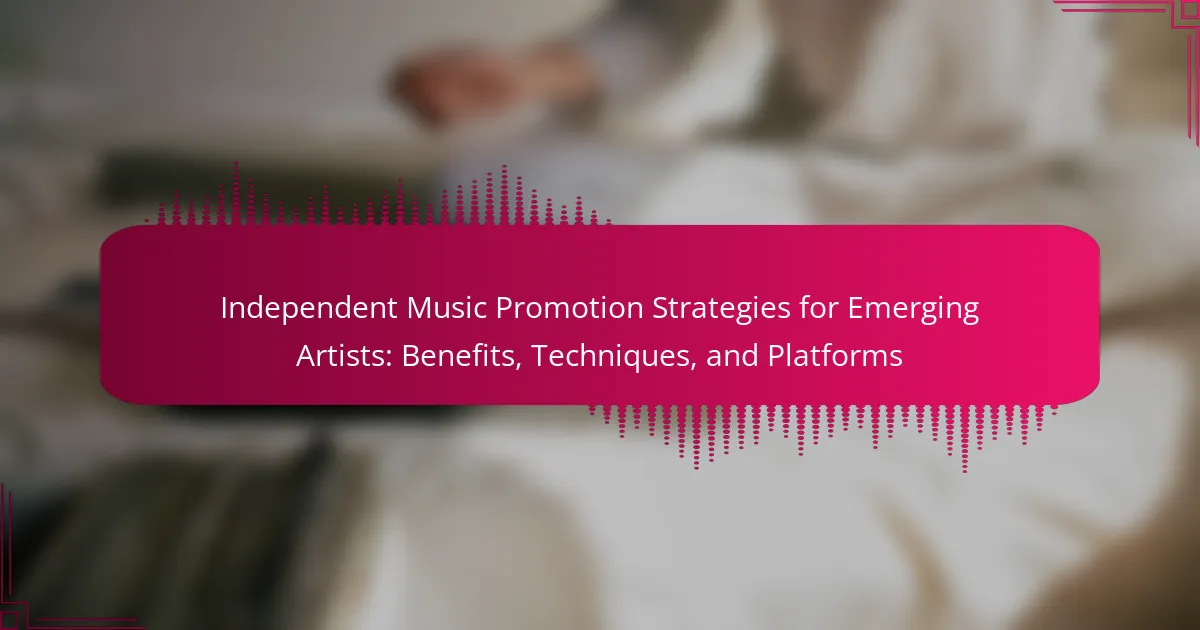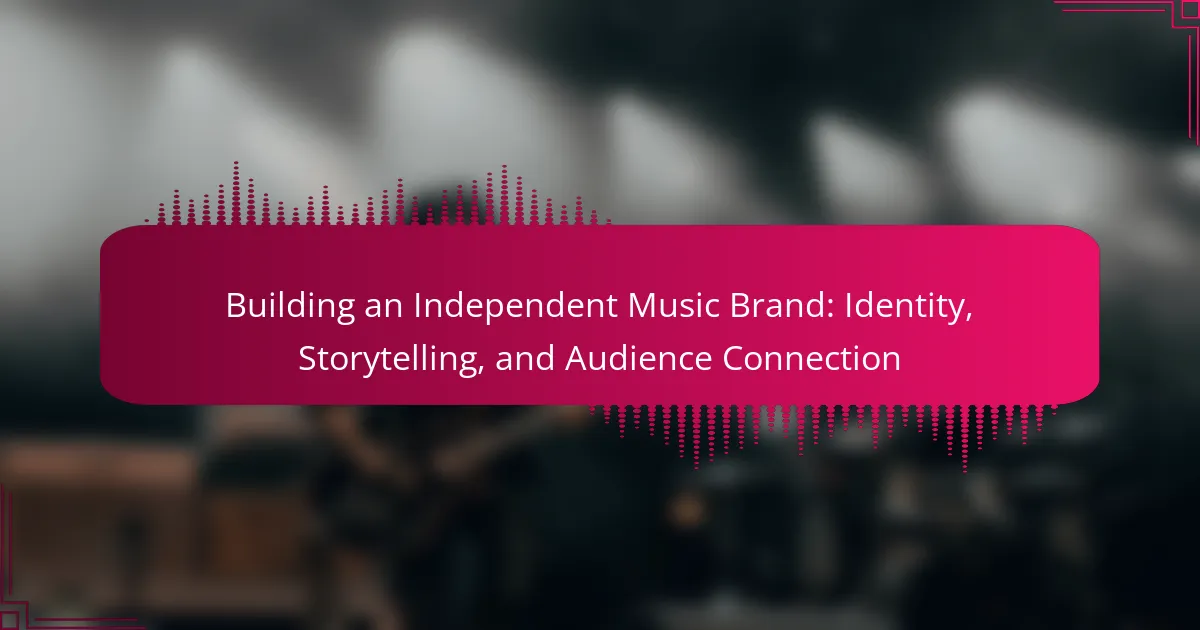Emerging artists often face challenges in music production, including limited budgets and technical knowledge. This article explores essential tools for DIY music production, practical techniques to enhance skills, common challenges faced, and valuable resources for learning. Discover how to optimize your setup and improve your craft while creating professional-sounding music independently.
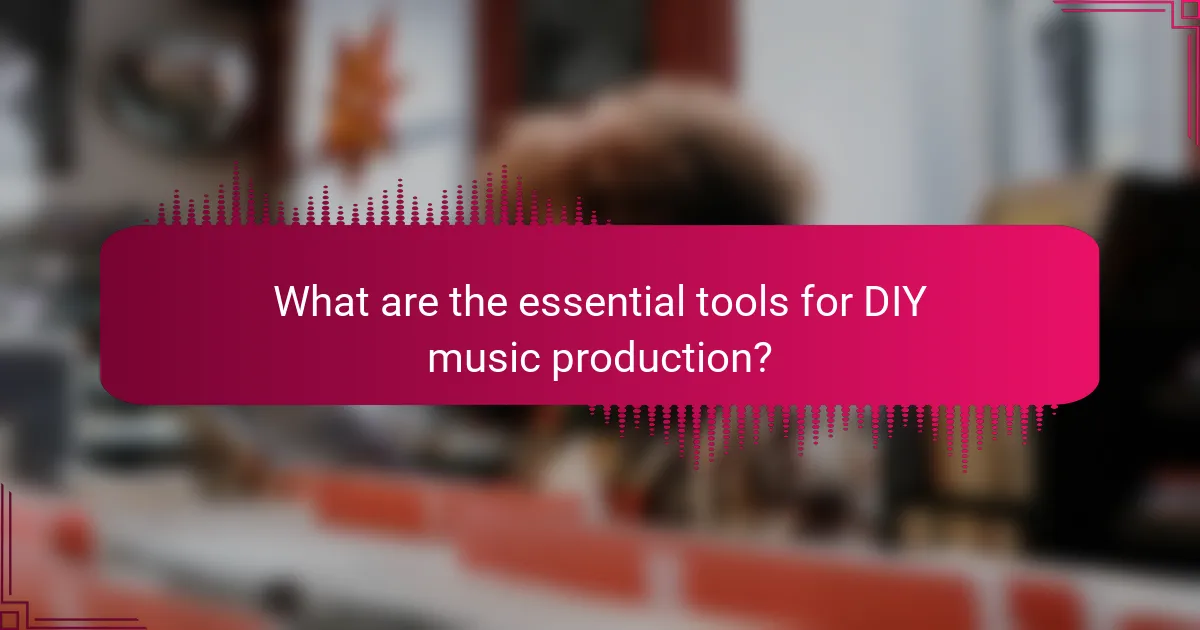
What are the essential tools for DIY music production?
Essential tools for DIY music production include a digital audio workstation (DAW), audio interface, microphones, studio monitors, headphones, and MIDI controllers. These tools enable artists to record, edit, and mix their music effectively. A DAW serves as the central hub for music creation, while an audio interface improves sound quality. High-quality microphones capture vocals and instruments, and studio monitors provide accurate sound reproduction. Headphones are crucial for detailed listening, and MIDI controllers facilitate music composition and arrangement. Each tool enhances the production process, empowering emerging artists to create professional-sounding music independently.
Which digital audio workstations (DAWs) are most popular among emerging artists?
The most popular digital audio workstations (DAWs) among emerging artists include Ableton Live, FL Studio, and Logic Pro. These platforms are favoured for their user-friendly interfaces and robust features that cater to various music production needs.
Ableton Live stands out for its live performance capabilities and intuitive workflow. FL Studio is renowned for its powerful beat-making tools and extensive plugin support. Logic Pro offers a comprehensive suite of features, making it suitable for both beginners and experienced producers.
Emerging artists often choose these DAWs due to their affordability, accessibility, and strong online communities that provide valuable resources and support.
How do audio interfaces enhance music production quality?
Audio interfaces significantly enhance music production quality by improving sound clarity and reducing latency. They convert analog signals into digital format with higher fidelity. This results in more accurate recordings and better overall sound. Additionally, many audio interfaces offer built-in preamps, which enhance microphone performance, providing richer tones. Overall, using an audio interface elevates the production value for emerging artists.
What role do MIDI controllers play in music creation?
MIDI controllers are essential tools in music creation, enabling artists to produce and manipulate sounds efficiently. They provide a tactile interface for triggering notes, controlling software instruments, and adjusting parameters in real-time.
These devices come in various forms, from keyboard controllers to pad controllers, each offering unique attributes that cater to different production styles. For instance, keyboard controllers facilitate melodic composition, while pad controllers excel in beat-making.
The integration of MIDI controllers with digital audio workstations (DAWs) enhances workflow, allowing for smoother transitions between composing and editing. Artists can experiment with sounds and arrangements, fostering creativity in the production process.
Using MIDI controllers can also streamline collaboration among musicians, as they allow for easy sharing of musical ideas and arrangements. This accessibility makes them invaluable for emerging artists looking to develop their skills and sound.
Which plugins and virtual instruments are must-haves for beginners?
Essential plugins and virtual instruments for beginners include a digital audio workstation (DAW) like Ableton Live or FL Studio, a synthesizer such as Serum or Massive, and a sampler like Kontakt. Additionally, reverb and EQ plugins, like Valhalla Room and FabFilter Pro-Q, are crucial for mixing. These tools help develop production skills effectively.
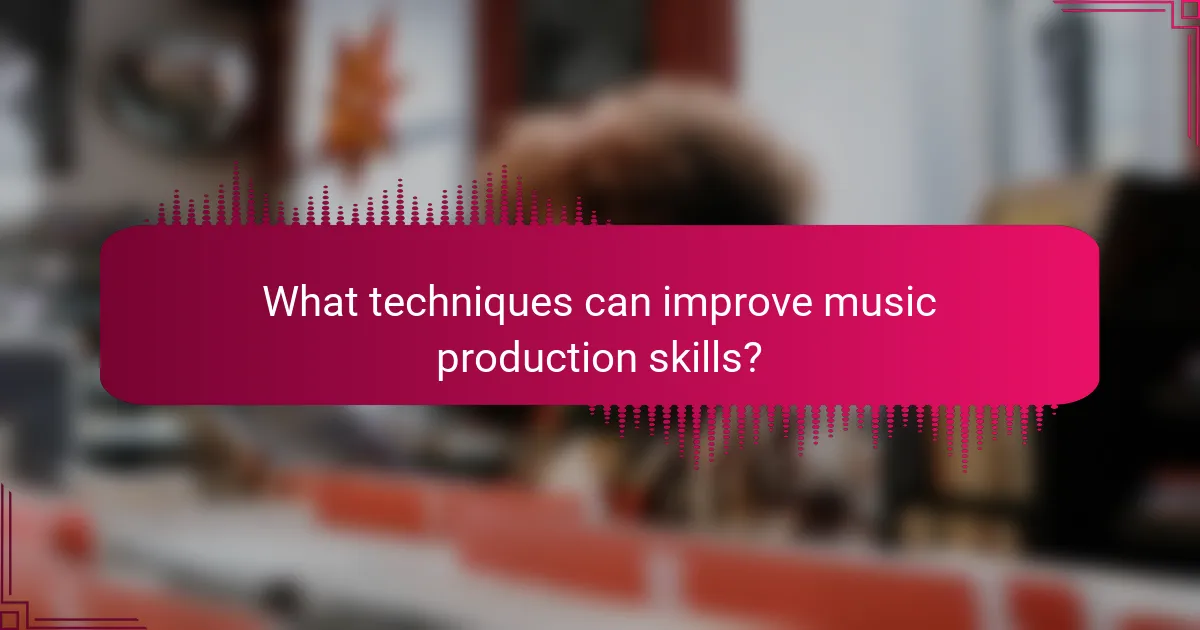
What techniques can improve music production skills?
To improve music production skills, emerging artists should focus on practical techniques. Start by experimenting with different DAWs to find the one that suits your workflow. Utilize online tutorials and courses to learn specific software features and production techniques. Collaborate with other musicians to gain new perspectives and insights. Regularly practice mixing and mastering to develop a keen ear for sound quality. Lastly, invest in quality equipment that enhances your production capabilities.
How does understanding music theory benefit DIY producers?
Understanding music theory enhances DIY producers’ skills by providing a framework for composition and arrangement. It enables better decision-making in chord progressions, melody creation, and rhythm structuring. This knowledge leads to more cohesive and engaging tracks. Additionally, it fosters creativity by allowing producers to experiment with musical elements confidently. Ultimately, grasping music theory can significantly elevate the quality of productions, making them more appealing to listeners.
What are effective mixing and mastering techniques for home studios?
Effective mixing and mastering techniques for home studios include proper gain staging, using EQ to carve out space for each instrument, and applying compression to control dynamics. Additionally, utilize reference tracks to ensure your mix translates well across different playback systems. Implementing these techniques can significantly enhance the quality of your DIY music production.
How can arrangement techniques impact song structure?
Arrangement techniques significantly influence song structure by determining how elements like melody, harmony, and rhythm interact. Effective arrangements enhance listener engagement and emotional impact. Techniques such as layering instruments, varying dynamics, and contrasting sections create a dynamic flow. For example, a well-placed bridge can provide contrast and maintain interest. Emerging artists can explore these techniques using digital audio workstations and production tools to experiment with different arrangements.
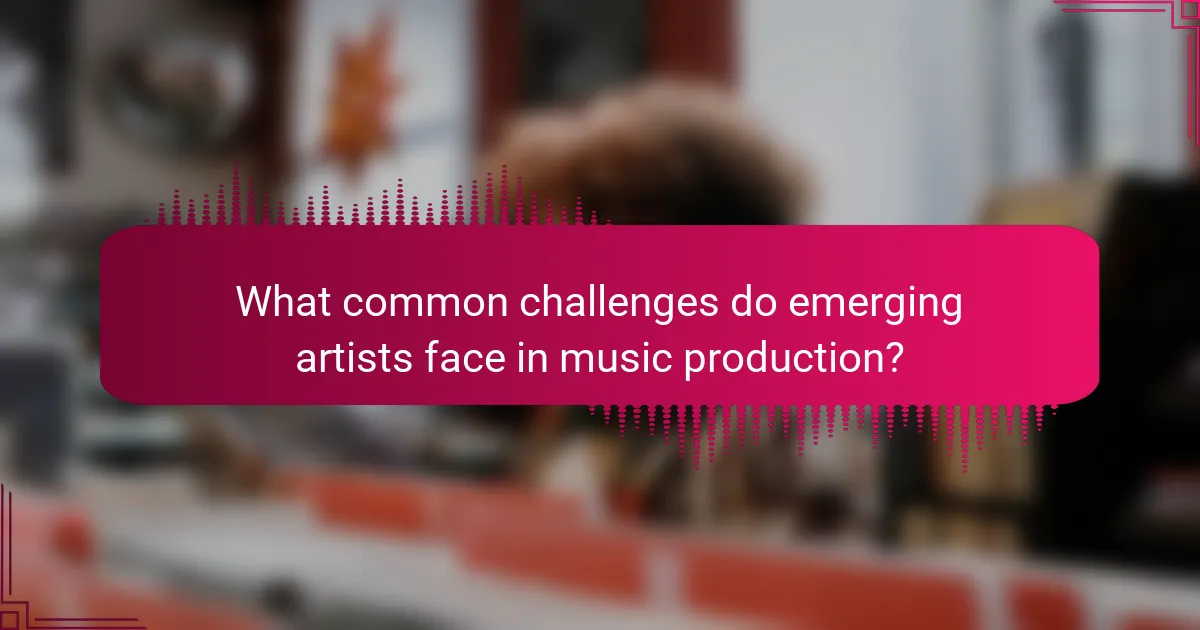
What common challenges do emerging artists face in music production?
Emerging artists face several common challenges in music production. Limited budgets restrict access to quality equipment and professional studios. Lack of technical knowledge can hinder the effective use of production software. Time constraints often lead to rushed projects, affecting the final product’s quality. Additionally, navigating the complexities of music distribution and marketing can overwhelm new artists, making it difficult to reach their audience. Networking opportunities may be scarce, limiting collaboration and support. Lastly, emotional pressures and self-doubt can impact creativity and motivation.
How can budget constraints affect the music production process?
Budget constraints can limit access to professional resources, affecting the quality and efficiency of music production. Emerging artists may need to rely on DIY techniques, utilizing affordable tools and software to create music. This often leads to a more hands-on approach, fostering creativity and innovation. However, it can also result in longer production times and potential compromises in sound quality. Prioritizing essential tools and learning to maximize available resources can help mitigate these challenges.
What are the most frequent technical issues encountered during production?
Common technical issues in DIY music production include audio latency, software crashes, and hardware compatibility problems. These challenges can disrupt workflow and affect sound quality.
Audio latency occurs when there is a noticeable delay between input and output, impacting recording and mixing. Software crashes can result from insufficient system resources or bugs, leading to lost work. Hardware compatibility issues may arise when using outdated or mismatched equipment, causing connectivity problems.
Addressing these issues often involves optimizing system settings, updating software and drivers, and ensuring that all equipment meets production requirements. Emerging artists should prioritize troubleshooting these technical challenges to enhance their production experience.
How do self-doubt and creative blocks hinder progress?
Self-doubt and creative blocks significantly hinder progress by stifling innovation and motivation. Emerging artists often face these challenges, leading to decreased productivity and limited exploration of DIY music production techniques. Self-doubt can cause hesitation in trying new tools or methods, while creative blocks can prevent the completion of projects. As a result, artists may miss opportunities to develop their unique sound and skills. Addressing these issues through techniques such as setting achievable goals and seeking feedback can help overcome these barriers.
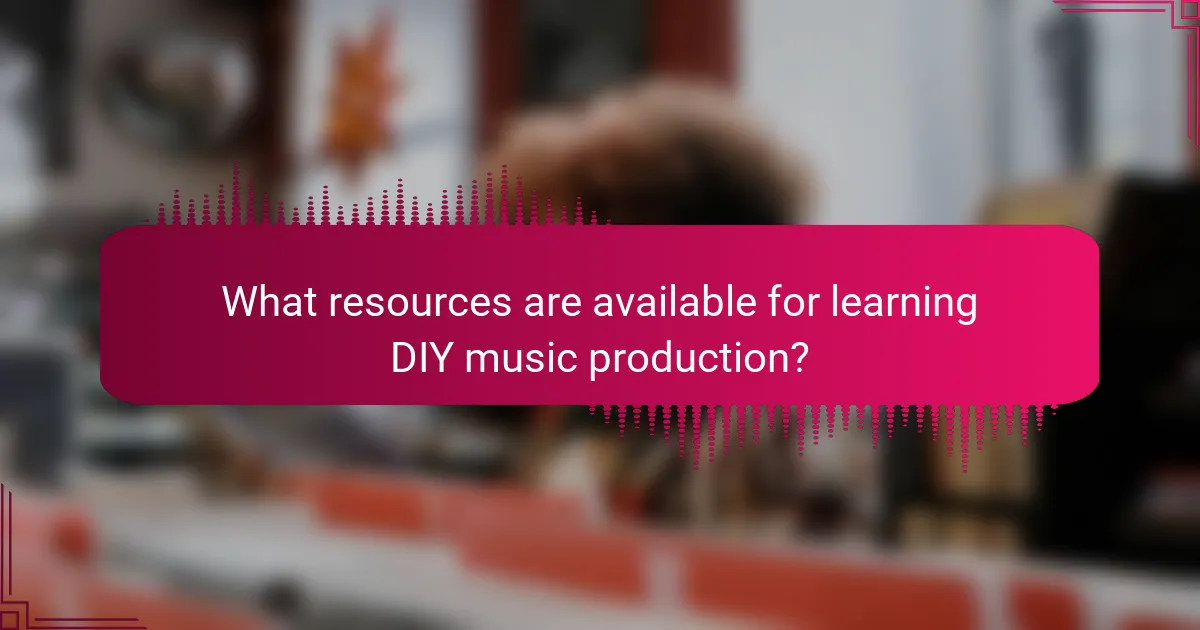
What resources are available for learning DIY music production?
Numerous resources are available for learning DIY music production, including online courses, tutorials, and forums. Websites like Coursera and Udemy offer structured courses on music production techniques. YouTube hosts countless tutorials from experienced producers. Additionally, forums like Gearslutz provide community support and insights. Software documentation and user manuals also serve as valuable resources for mastering tools.
Which online courses and tutorials are highly recommended?
For emerging artists, highly recommended online courses include “Music Production in Logic Pro X” and “Ableton Live 11 Fundamentals.” These courses cover essential DIY music production techniques and tools. Platforms like Coursera and Skillshare offer valuable tutorials focusing on mixing, mastering, and sound design. Additionally, YouTube channels such as ADSR Music Production provide free resources and tips for practical learning.
How can collaboration with other artists enhance skills?
Collaboration with other artists enhances skills by fostering creativity and encouraging diverse perspectives. Working with others exposes emerging artists to new techniques and ideas, improving their production capabilities. Collaborative projects often lead to skill-sharing, where artists can learn from each other’s strengths. As a result, artists develop a more versatile approach to music production, incorporating various styles and methods. This synergy can significantly elevate the quality of their work, making collaboration a valuable tool for growth.
What role do online communities and forums play in support and learning?
Online communities and forums play a crucial role in support and learning for emerging artists in DIY music production. They provide a platform for sharing experiences, exchanging tips, and accessing resources tailored to music production techniques.
Artists can seek feedback on their work, collaborate with peers, and gain insights into industry trends. These interactions foster a sense of belonging and motivation, which are vital for creative growth.
Forums often feature discussions on specific tools and software, helping artists make informed choices on equipment and techniques. Additionally, many communities offer tutorials and workshops, enhancing learning opportunities.
By connecting with others who share similar goals, artists can navigate challenges more effectively and discover innovative approaches to music production.
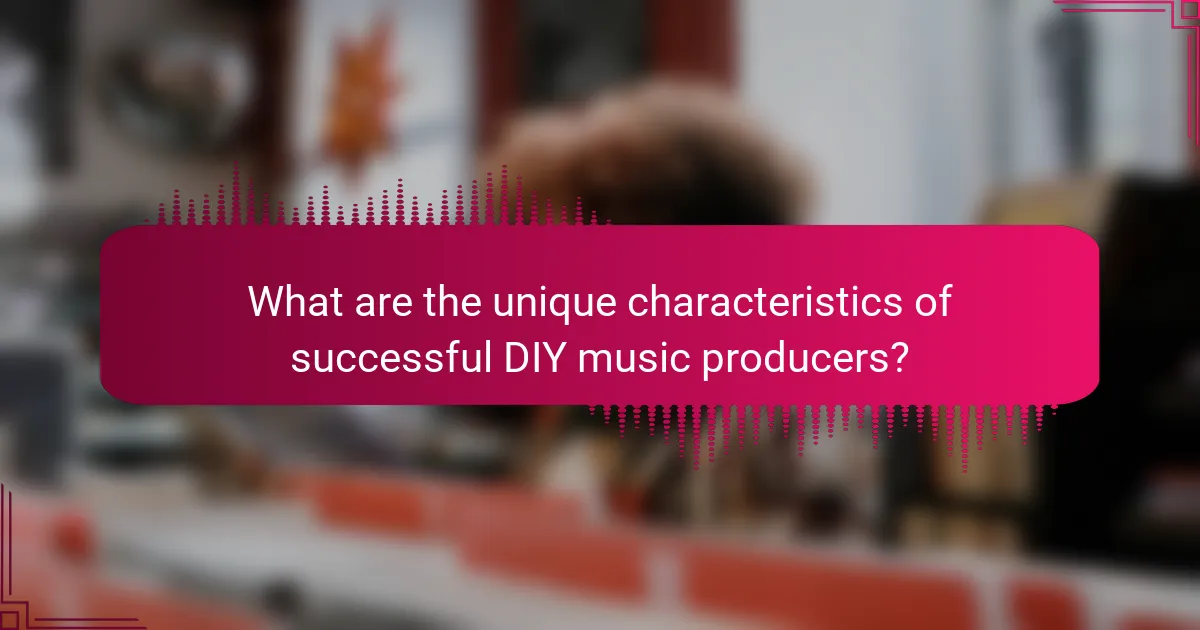
What are the unique characteristics of successful DIY music producers?
Successful DIY music producers exhibit creativity, technical proficiency, and adaptability. They leverage technology effectively, utilize home studio setups, and possess a strong understanding of music theory. Collaboration is key, allowing them to network and gain diverse perspectives. Unique characteristics include a distinctive sound that sets them apart and the ability to market their music independently. Rarely, they may also employ unconventional recording techniques that enhance their artistic expression.
How does a personal brand influence an emerging artist’s reach?
A personal brand significantly enhances an emerging artist’s reach by establishing identity and connecting with audiences. A strong brand fosters trust, making it easier for artists to engage with fans. Unique attributes, such as distinctive visuals or storytelling, can differentiate an artist in a crowded market. Additionally, leveraging social media platforms amplifies visibility, allowing artists to share their work and interact with followers directly. This strategic presence can lead to increased opportunities, such as collaborations and performances, ultimately expanding their audience base.
What innovative marketing strategies can DIY artists employ?
DIY artists can use social media campaigns, collaborations, and content marketing to innovate their marketing strategies. Engaging with audiences through platforms like Instagram and TikTok fosters community. Collaborations with other artists can expand reach and introduce new fan bases. Content marketing, such as tutorials or behind-the-scenes videos, showcases skills and builds brand identity. These strategies leverage digital tools to enhance visibility and engagement, essential for emerging artists in a competitive landscape.
Which storytelling techniques resonate with listeners in music production?
Storytelling techniques that resonate with listeners in music production include emotional narratives, vivid imagery, and relatable experiences. These techniques create a connection between the artist and the audience, enhancing engagement. Using personal stories or universal themes can evoke strong emotions, making the music more memorable. Additionally, dynamic contrasts in tempo and instrumentation can emphasize key moments in the narrative, reinforcing the story’s impact.
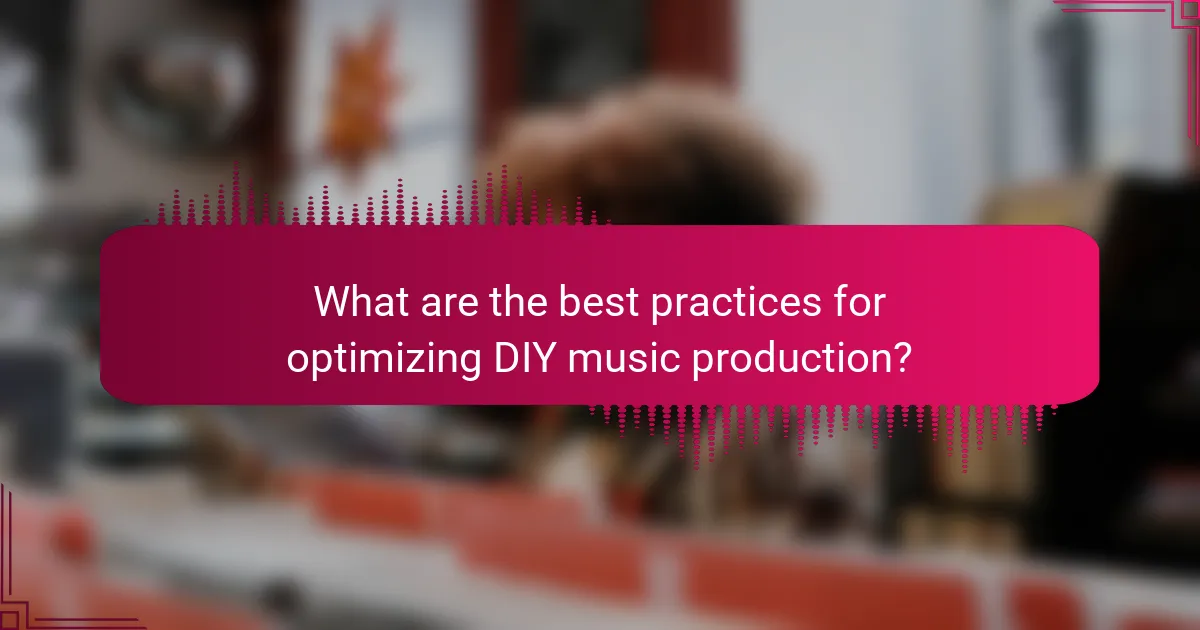
What are the best practices for optimizing DIY music production?
To optimize DIY music production, focus on using quality tools, understanding software, and enhancing your skills. Invest in a good audio interface and studio monitors for accurate sound. Learn digital audio workstation (DAW) features to streamline your workflow. Utilize online resources such as tutorials and forums to gain insights and feedback. Collaborate with other artists to expand your network and creativity. Regularly practice and experiment with different techniques to refine your sound.
Which common mistakes should emerging artists avoid in their productions?
Emerging artists should avoid common mistakes like neglecting sound quality, skipping proper arrangement, ignoring feedback, and underestimating marketing. Prioritizing these areas enhances production quality and audience reach.
1. Neglecting sound quality: Poor audio can undermine the entire production.
2. Skipping proper arrangement: A well-structured song keeps listeners engaged.
3. Ignoring feedback: Constructive criticism can improve future projects.
4. Underestimating marketing: Promotion is essential for gaining visibility.
How can time management improve productivity in music creation?
Effective time management significantly enhances productivity in music creation. By organizing tasks, artists can allocate focused periods for composition, recording, and editing. This structure minimizes distractions and maximizes creative output. Moreover, setting specific goals for each session fosters a sense of accomplishment, motivating continued progress. Utilizing tools like digital calendars or project management apps can streamline this process, ensuring deadlines are met without sacrificing quality.
What strategies can help maintain creativity and motivation in the long run?
To maintain creativity and motivation in the long run, emerging artists should adopt structured routines, set specific goals, and seek regular feedback. Engaging in collaborative projects can also enhance inspiration.
1. Establish a daily schedule for music production to create consistency.
2. Set achievable short-term and long-term goals to track progress.
3. Regularly seek feedback from peers or mentors to gain new perspectives.
4. Collaborate with other artists to explore different styles and techniques.
5. Take breaks to recharge and avoid burnout, ensuring sustained enthusiasm.
6. Experiment with new tools and techniques to keep the creative process fresh.
